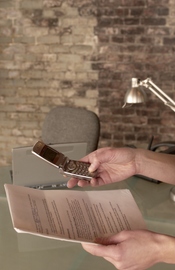Duty to Mitigate Losses and Damages in a Wrongful Termination Case

A Plaintiff in a wrongful termination cases has a duty to try to reduce or mitigate
his/her losses as a result of losing a job. This means that unless you are fully
disabled and are completely unable to work, you should diligently look for new
employment after your termination, and you should keep record of all your job
search efforts. This will likely prove to be important later in the case or at
trial when you will be asked - "what have you done to reduce your losses?"
Not being able to show that you have put and you are continuing to put a lot of
effort into finding a job or only being able to show very little effort into
finding a job might make your wrongful termination case weaker, whether it's way before trial or when you are
in court in front of the jury. There is an expectation that an unemployed person
will take reasonable steps to look for and find a new job after being fired.
Such statements like "I didn't bother to look for work, because the
economy is really bad and I know that there are no positions in my field" is an
argument that almost never works in court.
Here are some of the documents you can and you should keep as part of your job search record:
* All e-mails you send to potential employers inquiring about your job and/or submitting your resume;
* All the responses you receive in any form from potential empoyers, including the rejection letters or
* e-mails confirming that your applications has been received.
* A typed up or handwritten list of all the employers you contacted by phone, by e-mail or in person, approximate dates of that contact and the positions you applied for. This list can also include information about the job fairs you
attended, walk-in job applications and even a list of friends who you contacted to inquire about your being hired.
* A list of any temporary jobs you have held since your termination by the defendant.
Keeping a good record of your job search efforts will make a good impression on the opposing counsel, during your deposition, it will make your case look more compelling at a mediation or any other settlement proceedings and in trial, if your case goes that far.
his/her losses as a result of losing a job. This means that unless you are fully
disabled and are completely unable to work, you should diligently look for new
employment after your termination, and you should keep record of all your job
search efforts. This will likely prove to be important later in the case or at
trial when you will be asked - "what have you done to reduce your losses?"
Not being able to show that you have put and you are continuing to put a lot of
effort into finding a job or only being able to show very little effort into
finding a job might make your wrongful termination case weaker, whether it's way before trial or when you are
in court in front of the jury. There is an expectation that an unemployed person
will take reasonable steps to look for and find a new job after being fired.
Such statements like "I didn't bother to look for work, because the
economy is really bad and I know that there are no positions in my field" is an
argument that almost never works in court.
Here are some of the documents you can and you should keep as part of your job search record:
* All e-mails you send to potential employers inquiring about your job and/or submitting your resume;
* All the responses you receive in any form from potential empoyers, including the rejection letters or
* e-mails confirming that your applications has been received.
* A typed up or handwritten list of all the employers you contacted by phone, by e-mail or in person, approximate dates of that contact and the positions you applied for. This list can also include information about the job fairs you
attended, walk-in job applications and even a list of friends who you contacted to inquire about your being hired.
* A list of any temporary jobs you have held since your termination by the defendant.
Keeping a good record of your job search efforts will make a good impression on the opposing counsel, during your deposition, it will make your case look more compelling at a mediation or any other settlement proceedings and in trial, if your case goes that far.